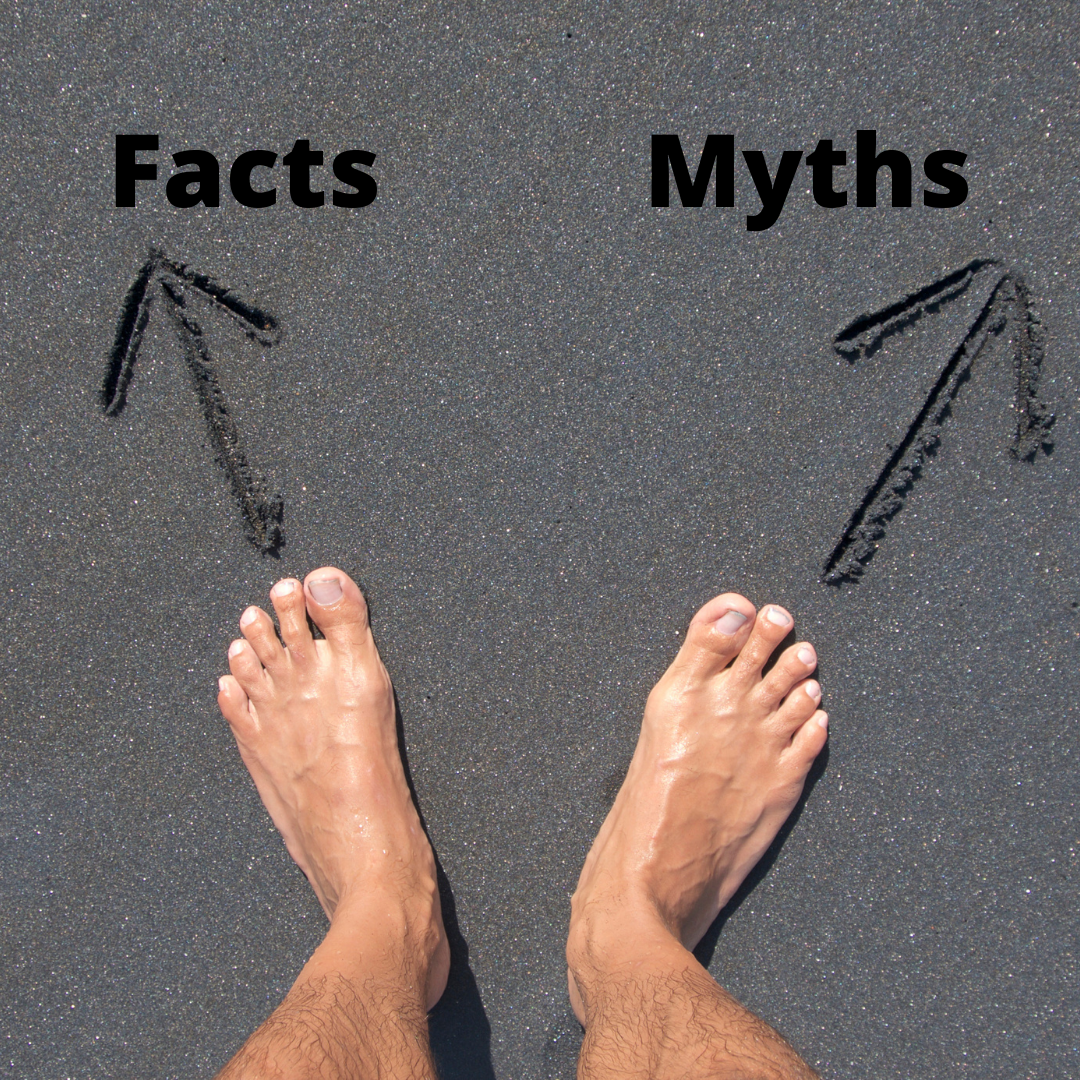“Black Hat SEO tactics are ones that use deception, manipulation, and gimmicks to trick search engines into ranking a site higher than it otherwise would rank.” ~ Forbes

Ranking higher on the top results page is the dream of every business. Without a doubt, it consumes enormous time and effort.
However, you may even encounter those who leverage Black Hat marketing techniques to reach the top spots. And, it may happen that they are outranking you by employing these shady tactics.
So, is it tempting you to follow the same path to outreach them? If your answer is "Yes!" or "Maybe!" — Then, Stop Right Away!
This shortcut technique might look fascinating and tempting to adopt but it will only lead you to critical trouble. In today’s article, we will cover all about Black Hat SEO and associated aspects. Take a look at the table of content below:
- What is Black Hat SEO?
- Understanding Black Hat SEO
- Major Tactics of Black Hat SEO
- Black Hat SEO Vs White Hat SEO
- The Reason Black Hat SEO is Negative for your Business
- Need to Stay Away from Black Hat Marketing
- Resist and Combat Black Hat SEO
- Examples of Black Hat SEO Techniques
Let’s Explore;
What is Black Hat SEO?
Black Hat SEO refers to a set of techniques that breaches search engine guidelines in order to rank higher on SERPs. Moreover, this method is solely focused on search engines, not human searchers.
Additionally, strategies of Black Hat SEO include hidden texts, buying links, spamming, keyword stuffing, link farming, and more.
Although, Black Hat marketing techniques produces faster outcomes and better results. But, it is still an unethical move with serious implications that include getting banned from search engines, high penalties, and more.
Basically, Black Hats are called out as the “Bad Guys” or “Hackers.” Interestingly, the ‘Black Hats’ phrase was coined in western films to distinguish them from the good guys who wore the — “White Hats.”
Understanding Black Hat SEO
As previously stated, Black Hat SEO approaches boost a website’s exposure in a search engine by unethical means. Further, these methods could lead to your site’s removal from affiliate sites and search engines.
Furthermore, a list of black hat SEO schemes and tactics has been formally rejected in Bing's Webmaster Guidelines and Google's Webmaster Guidelines.
Eventually, it could be a litmus test that determines if you are adding any value to users or simply increasing your ranking. If you are doing the latter by not adding any value to users. Then you're most certainly employing Black Hat SEO techniques and violating search engine guidelines.
When Google identifies black hat marketing practices, it will usually penalize the website by taking de-indexing, manual measures, or otherwise reducing the site's exposure in the search engine results page (SERP).
Suppose, if Google determines someday that employing several H1 tags is a black hat activity. Then, they will be able to amend their criteria and begin punishing websites. It has nothing to do with whether anything is "legal" or "illegal."
However, the imminent risk of black hat strategies is that Google constantly changes its software. It’s implemented to catch the most common black hat strategies. Google's Penguin update, for example, attacked low-quality content bolstered by spam links.
Google distributes updates on a regular basis to tackle black hat techniques. As a result, the effects of black hat tactics are transient. Therefore, spending time and money on black hat approaches is pointless if Google will eventually catch up and blacklist your site.
Major Tactics of Black Hat SEO
Following we have listed some major tactics of Black Hat SEO employed to reach the top ranks. Make sure to avoid doing them at all costs. Check them:
Keyword Stuffing
“An SEO copywriter walks into a bar, grill, pub, public house, saloon, bartender, drinks, beer, wine, liquor..” — this is one of the popular jokes on keyword stuffing.
If you closely observe this statement, it clearly makes no sense at all and doesn’t add any value to readers. This is exactly what keyword stuffing does to your content. It simply seems unnatural with broken strings of words that make no proper sentence.

In simple terms, keyword stuffing is a practice of stuffing content with irrelevant keywords. Undoubtedly, it is implemented to deceive the search engine pages to rank them higher on the search results page.
Let’s take a look at another example:
We are a digital marketing agency that provides digital marketing services to your clients. Our digital marketing firm offers various SEO-related services and fulfills digital marketing needs and interests.
As you can see, the keyword ‘digital marketing’ has been overly-stuffed. It clearly makes zero sense and value. This desperate move will eventually backfire with heavy penalties or banning from search engines.
Moreover, users will also get annoyed with certain variations of the same keyword that disrupts their experience. Instead of moving ahead with your content, they might reach another website— that will also increase the bounce rate.
Even though keyword stuffing appears to be a simple and quick way to rank higher, it is not. However, you run the risk of losing both customers and the website if you do so.
To be on the safe side, check what exactly keyword stuffing means according to Google:
- Listing of phone numbers with little or no value contributed.
- Content panels specify the locations and regions for which a website is intending to rank.
- Making unusual use of the same terms and phrases.
Paid Links
“Never Buy Links” — they might land you in trouble!
Any relevant links or backlinks can assist Google in determining whether your webpage is a trustworthy source of information. It also makes it possible for you to position higher in search results.

Purchasing or selling PageRank-passing links might degrade the quality of search results. Therefore, Google strictly prohibits the purchase and selling of links. It also entails delivering merchandise to a website in exchange for a link.
If you check Google Guidelines, it is clearly mentioned: “Any links intended to manipulate PageRank or a site's ranking in Google search results may be considered part of a link scheme and a violation of Google’s Webmaster Guidelines.”
Therefore, purchasing links won’t do any good for your website business. Instead, it will only result in heavy penalties or harm to your website. Remember that you can't deceive Google since it's so good at detecting unusual behavior that it can readily track paid links.
Ensure you're not selling a link to your material on a third-party website. Moreover, users have the access to report instances of someone attempting to sell or buy links to Google. If the behavior is detected, they warn that both involved parties in the links will be penalized.
In case, you already sold or purchased the links without knowing about this Black Hat SEO tactic. Then, you need to eliminate them as early as possible.
For that, you can seek out a disavow links tool to remove those links. When Google assesses your PageRank, this signals it to ignore the purchased links.
Note: Any website that displays adverts without the rel=Nofollow attribute is considered a paid link.
Link Farming
This is a site that exists mainly to boost the number of backlinks to another website's exposure.
Link farms evolved in response to Google's PageRank ranking model. PageRank considers links to vote, with one page linking to another casting a vote. As a result, pages with numerous links were considered useful.

Although link farms were built to aid in the rise of PageRank, Google and other search engines have recently updated their procedures to restrict link farms from displaying at the top of search engine results pages.
Moreover, a link farm resembles a typical website, but most of the content is hyperlinked to other websites. It is quite unusual and irrelevant.
Additionally, link farms can be promoted as link-building channels. However, they're frequently established by building a network. And, this network is built just for the aim of aggregating various locations to a specific website.
Eventually, link farming falls under the “Black Hat” category. It is mainly because of unrelated linking of websites. Moreover, these links are not designed by humans but automatic programs or services. As a result, it comes out as poor quality.
Remember that link farms are easily detected by search engines. Therefore, make sure not to consider them for a credible long-term search engine optimization tactic.
Cloaking
This is the process of showing search engines and users different content or URLs. Again, cloaking falls under the breaching of Google guidelines. This technique is implemented to rank content, which is completely unrelated to the content.
Websites that use black hat techniques This is done by SEOs to make content rank for a variety of terms that are unrelated to the content. Spam websites commonly do this to prevent a search engine bot from identifying the spam content they offer to consumers.
Examples of cloaking include:
- Creating content or pages that are just visible to crawlers and are not intended for users.
- Search engines are served a page of HTML text, while consumers get a page of graphics.
Cloaking will undoubtedly lead you to face some serious consequences. Cloaking can also take the form of doorway pages. Furthermore, in order to rank for specific keywords, they divert visitors to other pages. They're also known as jump pages, entry pages, bridge pages, gateway pages, or portal pages.
However, a simple method to avoid this black hat strategy is to always develop content for users and to use HTML whenever possible. The only markup languages that Google can comprehend and use are HTML and HTML5.

And, these include the only markup languages that both users and crawlers can view. This black hat marketing approach will never be a problem if you provide an excellent user experience for people.
Private Blog Networks (PBN)
A private blog network is a group of authoritative websites that are mostly utilized for link building. Furthermore, they're also comparable to link farms as they both aim to boost the number of links going to a single website.
When SEOs want to create a private network, they often purchase terminated domains with a lot of authority. Additionally, they'll also include links to their own site and create content that's similar to what was previously on the domain before it was halted.

They do expect search engines to miss the fact that they're operating a network of websites. In the search results, they will instead offer their primary site a far higher ranking.
PBNs have grown exceedingly challenging for search engines to discover. If you employ them to improve your search visibility, you will face severe penalties.
Therefore, focus on offering high-quality content instead of wasting time on bogus websites. Maintaining your content under one roof will offer your site a lot of authority because everyone will link to the same domain.
Rich Snippets/ Structured Data
Structured data is referred to by two terms: rich snippets and schema. It lets you customize how your content appears on search engine results pages.
It distinguishes your information from that of your competitors. Structured data is loaded to a page that offers, among other things. One of the most common sorts of structured data is reviewed schema markup.
Black Hat SEO deceives search engines and consumers, SEO entails giving misleading information in structured data.
Someone who practices black hat SEO, for example, might give themselves a top-star rating on a false review site. And, includes add structural data to help them shine out in search results pages.
However, this is a particularly problematic practice because search engines like Google encourage consumers to report websites that exploit structured data.
Blog Comment Spam
Comment Spam, also referred to as user-generated spam, is content generated by bots or users. It is produced in order to obtain excessive traffic or links that direct to a specific website or webpage.
Furthermore, placing links to your website in comments on blogs is a spam way to attract links to your site, and we definitely recommend against it.

Examples of comment spam include— spam thread posts, spam accounts on free hosting, and spam blog comments.
As a result, make sure to avoid this activity by refusing to engage in it. Nonetheless, comment spam can have a detrimental impact on your website's potential to rank, and manual steps may be undertaken against it.
Note: A strategy to decrease the risk of spam user-generated material is to employ anti-spam systems like Google's free reCAPTCHA service.
Footer Links
Footer space, which can be found at the bottom of every webpage, is highly sought after. This is why Google is fast to flag footer links containing commercial anchor texts that could distort search results.

Malicious Backlinks
Google includes a form to help disavow connections. Therefore, make sure that you avoid using Google's penalty system to your advantage by actively linking with websites to drive down your page rankings.
Furthermore, this indicates that if you are facing manual action for unnatural links on your website and are unable to delete them. Then, you can utilize this tool to disavow them.
When reviewing your backlinks, keep in mind to remove yourself from any harmful domains.
Implementing High Anchor Links
Avoid using the same title as your page while sharing a link. Despite assuming relevancy, the headline and the page share the same aim, and unfortunately, it appears spammed.
Avoid keyword stuffing by keeping anchor text short, intriguing, and original, and relating it to the linked-to page. Both internal and external links should be treated the same way.
Sneaky Redirects
As the name suggests, a sneaky redirect is something that sends someone to a completely different URL from the one they tapped on.
Moreover, this happens when a website utilizes JavaScript to reroute and show information to a user that a search engine can’t see.
However, you can combat sneaky redirects in the same way as cloaking by utilizing HTML5 and offering an excellent user experience to crawlers and users.
Low-Quality Content
Generating poor-quality content that offers zero value to users also comes under the black hat practice. Furthermore, after the Google Panda Update, low-quality content has become increasingly harmful to websites. Low-quality content would no longer rank at the top of search engine results as a result.

Avoid keyword stuffing and generate high-quality and relevant content to avoid this black hat strategy.
Another black hat tactic for deceiving search engines is the "bait and switch." This requires creating content around a term you'd like to rank for. The content is swapped with something that earlier page ranks for this subject in search results.
On the other side, visitors will have a negative experience because the material they linked to is no longer accessible. These approaches are inefficient SEO strategies because they manipulate both customers and search engines.
Furthermore, selecting high-quality, original material will help your website stand out from the crowd. Also, this strategy comes under the White Hat SEO.
Additionally, high-quality content will help you to target the right audience and build a better community that converts into customers as well.
Check this Table on the Black Hat SEO Checklist that you Must Avoid:
Black Hat SEO Vs White Hat SEO
We've listed some of the major differences between black hat and white hat SEO in the next section. Let's get started:
Black Hat SEO:
This activity includes a set of tactics to reach higher on the search engine results page by breaching the terms and guidelines of Google. It’s a malicious practice that must be avoided at all costs. If done otherwise, then it may lead to serious consequences such as heavy penalties or banning of websites from search engines.
Black Hats— generally used to describe virus producers, computer hackers, and others who engage in unethical computer behavior.
Examples of Black Hat marketing include content automation, hidden text or links, keyword stuffing, doorway pages, Negative SEO, and so on.
White Hat SEO:
This includes tasks that comply with search engine terms of service. Moreover, White Hat SEO helps to improve a site's search engine results page (SERP) positions. It works while sustaining the site's credibility and abiding within the search engines' guidelines & terms and conditions.
Examples of White Hat SEO marketing include offering high-quality services and content, quickly loading of websites, keyword-rich meta tags, mobile-friendly websites, simple and easy navigation of websites, and so on.
Check the following table to learn thoroughly about White Hat SEO Vs Black Hat SEO. Let’s check:
The Reason Black Hat SEO is Negative for your Business
The search engine algorithms are becoming more complex every day. The objective is always the same: to improve our ability to provide individuals with outcomes that are truly valuable. As a result, many of the major Google changes in recent years have targeted the types of black hat approaches.
Attempts to cheat the system and boost a website's rating by using techniques rather than giving true value can provide temporary results.
However, after an algorithm upgrade takes place, those websites risk facing penalties that will cost them considerably more than the temporary benefits.
Google frowns on websites that attempt to deceive its algorithms. Why would they do that? They've been telling SEO specialists and website owners for years that the best method to improve rankings is to generate fantastic content that's relevant to your audience's interests.
Also, make sure that all of the technical aspects, such as website performance and mobile experience, are in order to provide a positive user experience.
You'll stay on Google's good side if you concentrate on strategies for giving a continuously valuable experience to your visitors. It's more difficult. It is, however, the only method to develop the kind of website authority that results in long-term SEO outcomes.
Need to Stay Away from Black Hat Marketing
As previously said, black hat SEO practices can help you rank higher on search engines. And, for that you may face serious consequences that include a website ban or heavy penalties. Moreover, Google and other search engines work quite strictly against Black Hat marketing activities.
Although black hat SEO isn't illegal, it does violate search engine webmaster guidelines. To put it another way, it continues to be prohibited. This means that if you engage in black hat marketing, you should expect a harsh penalty.
Undoubtedly, Search engines are becoming increasingly adept at detecting black-hat SEO tactics. Therefore, it's almost impossible to escape being discovered performing black hat SEO nowadays.
Black hat SEO isn't beneficial to either the audience or the search engine. While black hat marketing may provide few perks, however, search engines may pick up on your black hat tactics, causing your search presence to suffer.
Although increased traffic to your site may provide some short-term success but it is not permanent. However, Google penalties are becoming increasingly smart and can have disastrous repercussions on your ranks and traffic. Therefore, make sure to avoid black Hat SEO marketing tactics.
To tackle black hat marketing, the most efficient method is to simply avoid it. Make sure your SEO specialists realize the distinction between white hat and black hat SEO, whether you're operating with an internal team or an SEO business.
Remember that black hat marketing tactics might have a detrimental influence on your company's long-term development.
So, it’s your choice if you really could afford such consequences only for the sake of short-term success and benefits.
Resist and Combat Black Hat SEO
You may want to combat black hat SEO for one of two reasons. Either your website has been hacked, or infected with a virus. The other reason include —you are seeing spammed web results for a competitive phrase that your website is ranking for.
For the latter, you may also use Google Webmaster Tools to register a webspam report. Please use caution when using this tool. Wrongly reporting spam on the internet is a form of black hat SEO.
However, if your website has been infected or hacked with malware or viruses. Then, you should request a malware evaluation once you've removed the dangerous code.
If your website becomes the target of spam backlinks as part of a negative SEO attack, use the Disavow Links Tool to remove them and protect your site's ranking.
Examples of Black Hat SEO Techniques
Check the following examples associated with Black Hat marketing techniques:
Google Chrome’s Paid Links
Even Google makes mistakes with their own SEO now and then. They placed a follow link in a sponsored piece for Google Chrome at one instance. This is regarded as black hat SEO because the added links work as part of sponsored posts paid by corporations.
The Google webspam team penalized www.google.com/chrome, lowering its PageRank for a sixty-day period. Because of the negative publicity surrounding Google Chrome, they have dropped in search results for the term "browser."
Forbes Selling Links
Someone impersonating as a Forbes employee asked for assistance with a linking violation notice on the forum of Google Webmaster Central. Forbes was told to remove all fake connections from their content.
In the conversation, Google's Matt Cutts stated that he had verified several times that bought links pass PageRank. To have the penalty lifted, Cutts advised Forbes to eliminate the paid links that cross PageRank.
Forbes began removing the paid links in 2011 after incurring the penalty, according to TechCrunch.
Groupon’s Bait and Switch
San Francisco Comprehensive Tours accused Groupon of pulling a bait and switch. The tour firm sponsored a one-of-a-kind deal with Groupon, but the voucher website continued to influence it on Google long after the promotion had ended.
The material on Groupon's page had been switched out, so there was no offer to be found when searchers clicked on it. This bait and switch occurred in a PPC campaign, but it happens frequently in organic results as well.
Final Takeaways
Finally, you reached the end of this detailed guide. Let’s revisit some of the following points for future reference:
- Black Hat SEO refers to a set of techniques that breaches search engine guidelines in order to rank higher on SERPs.
- Strategies of Black Hat SEO include hidden texts, buying links, spamming, keyword stuffing, link farming, and more.
- Google distributes updates on a regular basis to tackle black hat techniques.
- Purchasing or selling PageRank-passing links might degrade the quality of search results.
- A link farm resembles a typical website, but most of the content is hyperlinked to other websites.
- Cloaking falls under the breach of Google guidelines. This technique is implemented to rank content, which is completely unrelated to the content.
- White Hat SEO helps to improve a site's search engine results page (SERP) positions. It works while sustaining the site's credibility and abiding within the search engines' guidelines & terms and conditions.
- Make sure that all of the technical aspects, such as website performance and mobile experience, are in order to provide a positive user experience.
- You may also use Google Webmaster Tools to register a webspam report.
Related Articles












